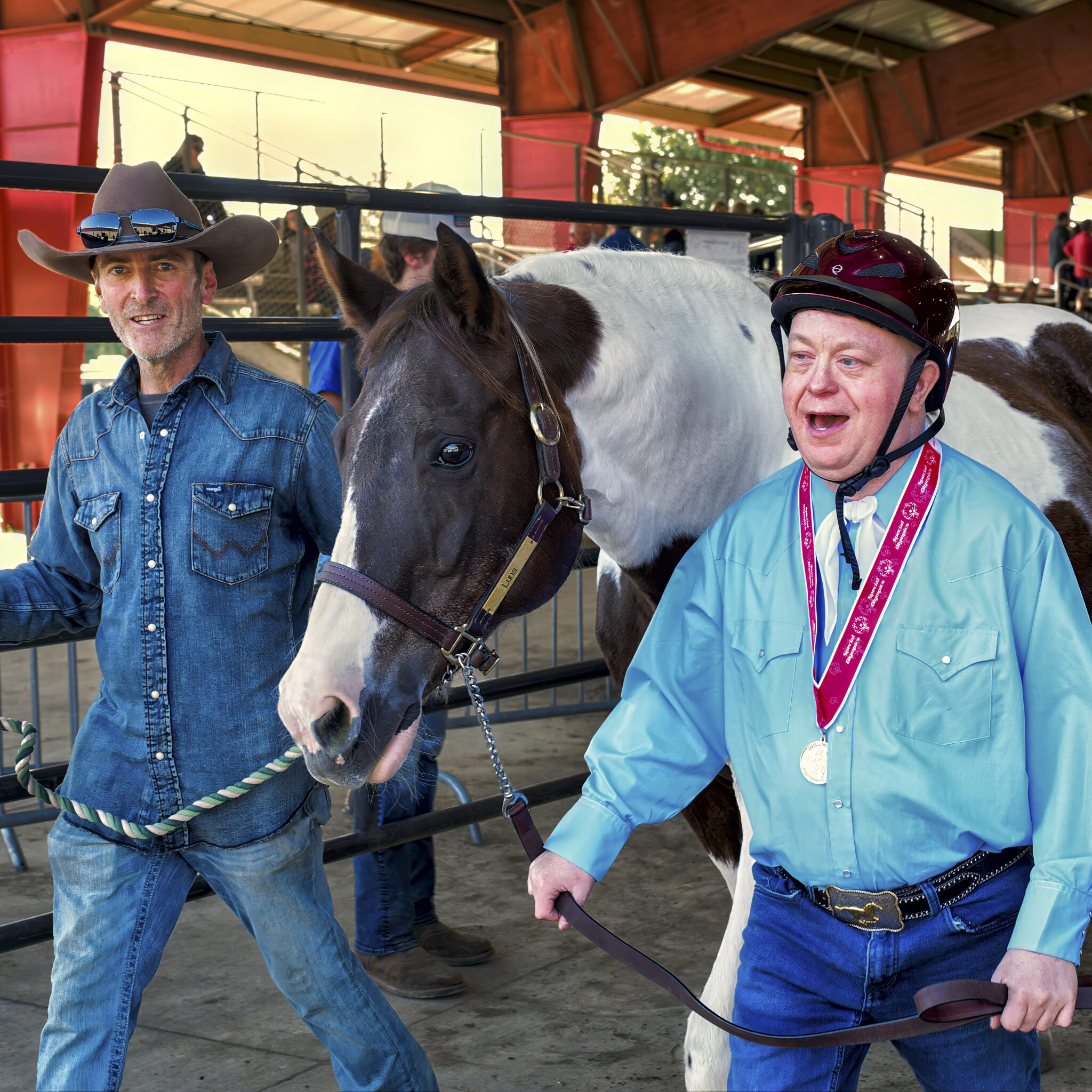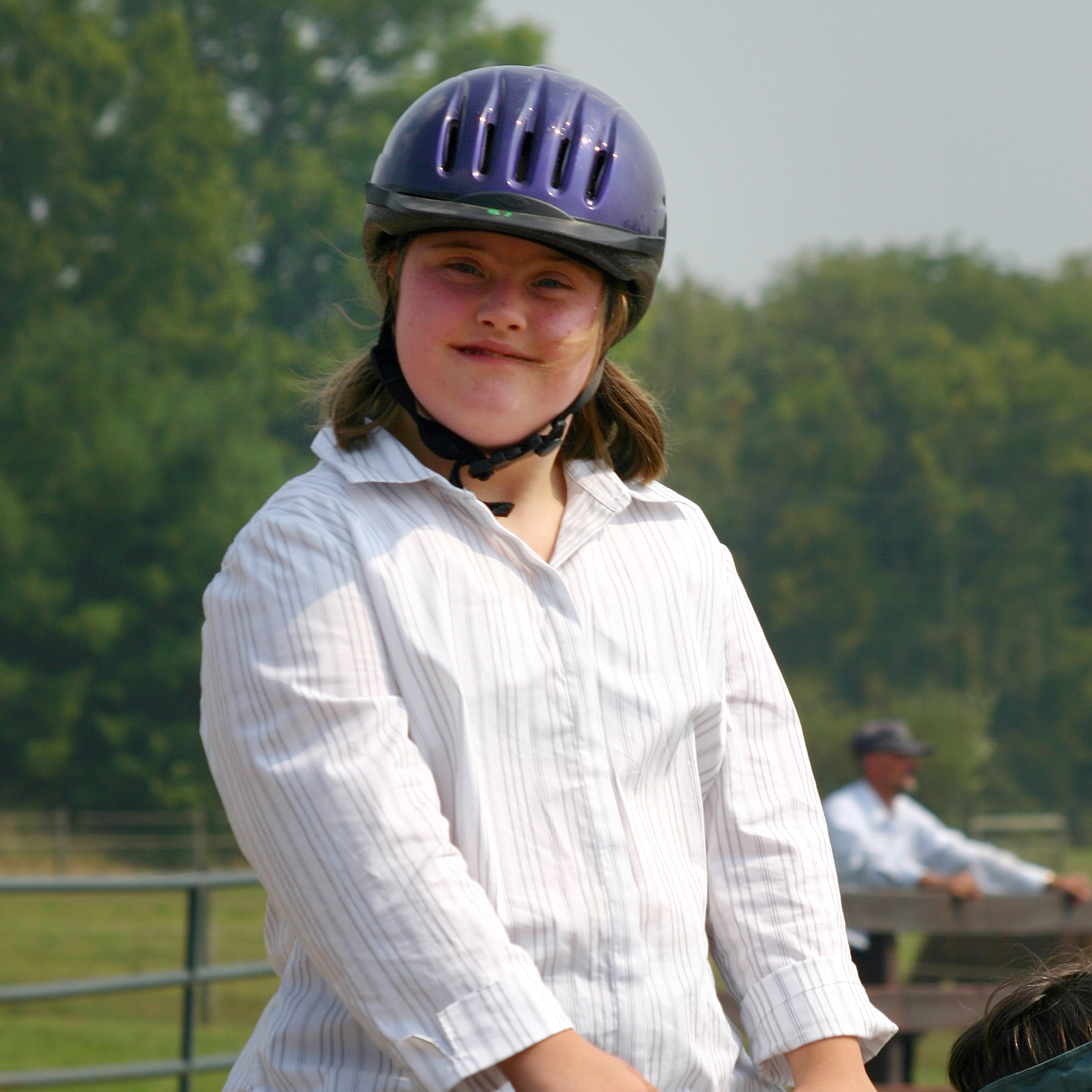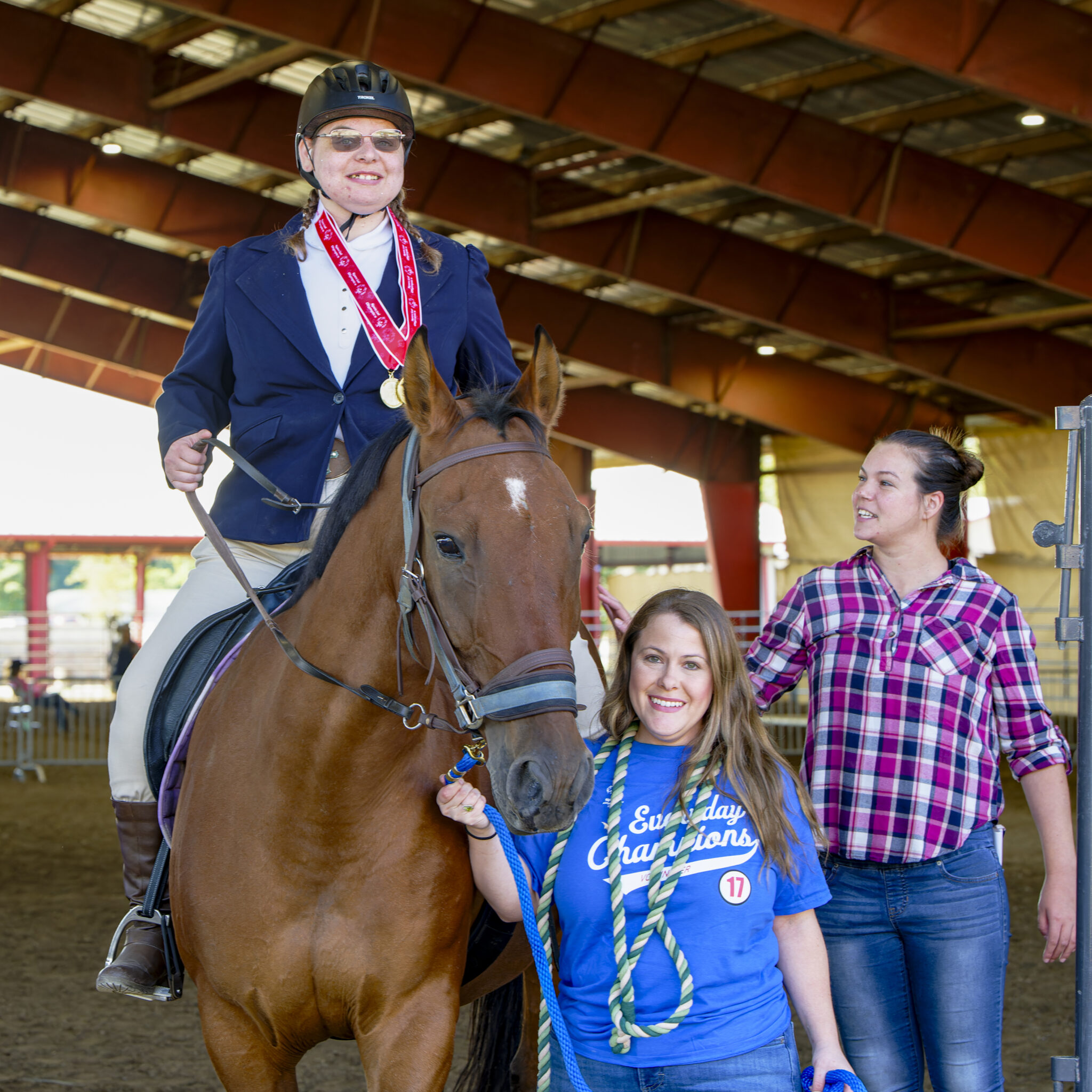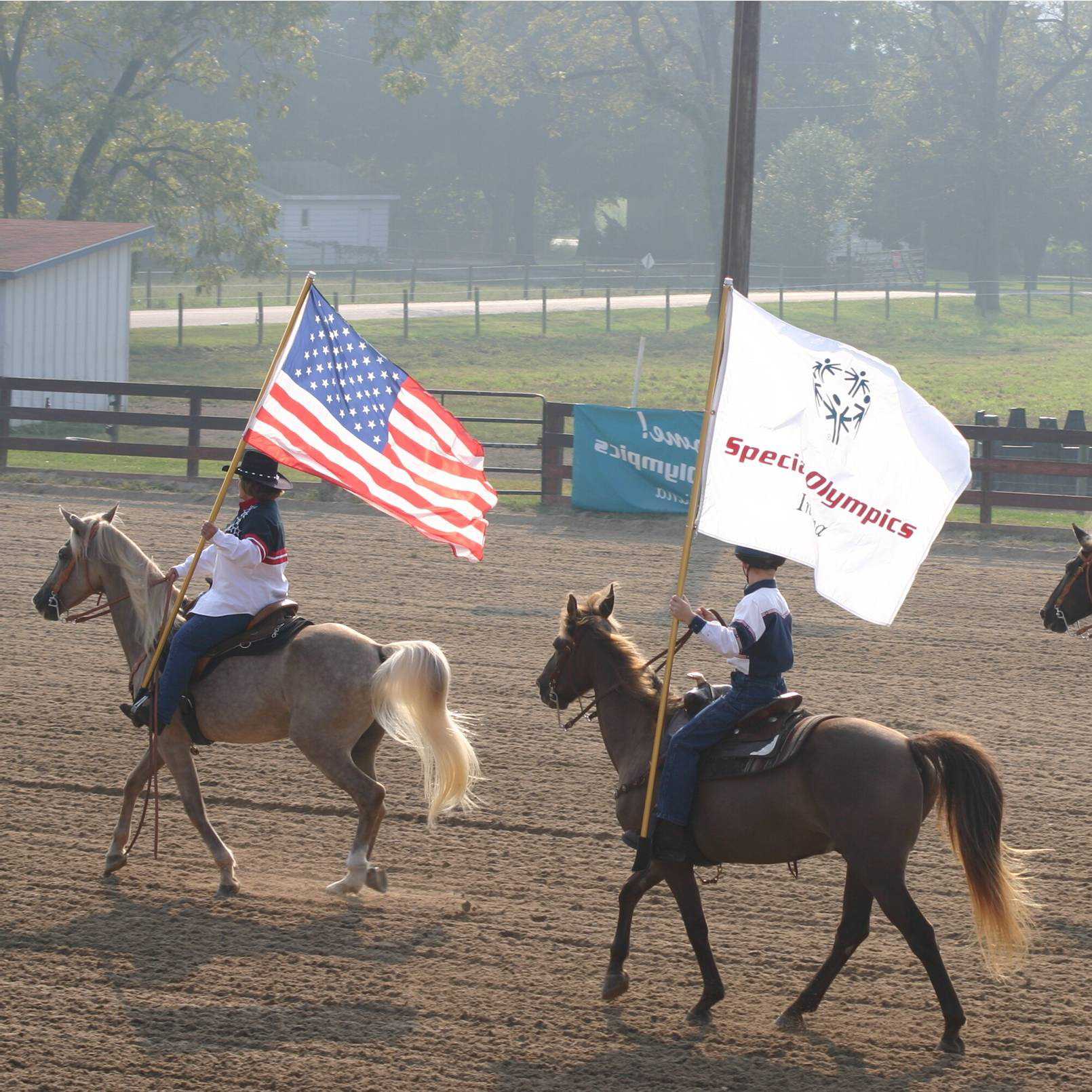Many people are familiar with the Special Olympics Summer Games, but did you know the nonprofit organization offers year-round sports for individuals with intellectual and developmental disabilities?
This fall they will return to the Hendricks County 4-H Fairgrounds for the annual equestrian state competition.
“The equestrian program, in general, helps with balance, posture, and mobility issues, and just being around a horse is stress-reducing,” said Savannah Vaughn, manager of individual sports for Special Olympics Indiana.
Studies show that people working with horses can experience decreased blood pressure, lower stress levels, and reduced feelings of tension, anxiety and anger. Equine therapy programs can be beneficial to veterans, people with IDDs, those struggling with mood disorders, and so much more. Individuals can gain feelings of self-esteem, empowerment, patience and trust, making it a perfect sport for Special Olympic athletes.
The fall competition will feature 19 events, and some are unified, including a partner without an IDD, while others are independent.

“The unified pairs train together and work together to improve,” Vaughn said. “We often see our athletes build confidence and camaraderie with their coach and their unified partner, and it helps build a more inclusive world.”
Though many athletes discover the equestrian program through family members who take horseback riding lessons or live on a farm, others decide to give it a try on a whim, and often learn to ride and care for a horse for the first time.
In 2023 approximately 34 athletes attended the competition, and those numbers continue to increase as more barn owners across Indiana get involved.
Athletes look for a coach and barn with equestrian experience. Trainers familiar with the Special Olympics program and working with athletes with IDDs know how to make the adaptations often needed.
There’s a need for additional barns and trainers as the program grows.
“We had a new barn join us this past year and they had 17 athletes come out for the call-out meeting,” Vaughn said. “They weren’t able to take all of them due to availability.”
Once an athlete has found a participating barn, however, they are often hooked on working with the large, gentle giants.
Danielle Stewart has competed in the equestrian state competition for the past five years. Though she agrees with all the benefits horseback riding can include, she said it’s also simply a lot of fun.
“I’ve always been into animals but I hadn’t ridden a horse before then,” Stewart said. “I thought I’d try it out and I ended up really liking it.”
The relationship formed between the athlete and their horse is like no other.

“I’m currently on Emmett and he’s a big goofball,” Stewart said. “Riding horses is a lot of work. They’re very big and smart too. They are supposed to follow directions but they have attitudes just like people. My first year at competition, he didn’t want to go around the second barrel. He just wanted to go straight out the gate and back to his stall.”
The state competition is a two-day event, with the first day primarily for the athletes, coaches and horses to arrive.
“I help get the horse in the stall and put down sawdust for them,” Stewart said. “We might do some warm-ups. I’ve learned how to take care of them, like feed and brush them at the barn.”
Everyone stays overnight and some athletes enjoy the campgrounds available on the fairgrounds.
“We open Saturday with a ceremony,” Vaughn said. “It’s a welcoming event that highlights the counties and barns involved. We thank our sponsors and partners and volunteers.”
Special Olympics has partnered with experts in the area to give athletes the best experience possible.
“The Hendricks County horse club provides the judges, announcers, and additional volunteers as well,” Vaughn said. “It’s so helpful to us because they have equestrian knowledge. They help lead the event and the athletes are able to experience a much more inclusive opportunity.”
The first portion of the day includes categories like groom and tack, showmanship and others. Athletes show what they’ve learned when it comes to caring for the horses and preparing them for a ride.
Later that afternoon, they begin the mounted competitions such as relays, pole bending, barrels and more. They’re often timed and require practice and precision.
Stewart competes in the barrel category, guiding the horse around an obstacle of two to three barrels as quickly as possible. She said that as she’s called up to the gate, wearing her competition jeans and long-sleeved shirt and helmet, she thinks through what she and Emmett have practiced so many times before.
“I go through everything in my head,” Stewart said. “It’s a pattern. You have to watch where you’re going, and we can either walk, trot or canter. I do the cantering. It can be difficult because sometimes they don’t want to do it.”
Stewart has received several gold and silver medals over the past five years.
“It feels good and it feels like all of your hard work is worth it,” Stewart said. “If you get silver or bronze or a ribbon, you just know you have some things to work on and there’s room to improve. It’s taught me not to be a sore loser, and to be humble.”
Vaughn said the growth seen in the athletes each year is what she finds most inspiring.
“Hearing a coach speak about how some athletes are terrified to even get close to a horse, but by the time they’re done they medal in an event – that’s exciting to me,” Vaughn said. “They’re putting so much time and effort in, and there’s growth each week. You can see the progression.”

Special Olympics Indiana offers eight more sports in the fall season, along with numerous others throughout the year.
Stewart participates in swimming and cornhole as well.
“I’ve made a lot of friends and it’s been a lot of fun,” Stewart said. “I’ve worked on my people skills and it’s taught me not to be a couch potato. I get exercise, I’ve learned a lot, and I’ve learned how to work with a horse. It’s been fun.”
In order to compete in the Special Olympics equestrian program, athletes must be 8 years old, but there is no maximum age for the program. They can compete for as long as they want.
The Special Olympics equestrian state competition will be held on September 27 and 28 at the Hendricks County 4-H Fairgrounds.





